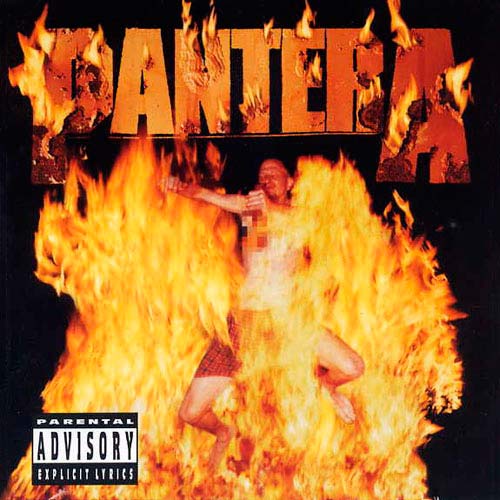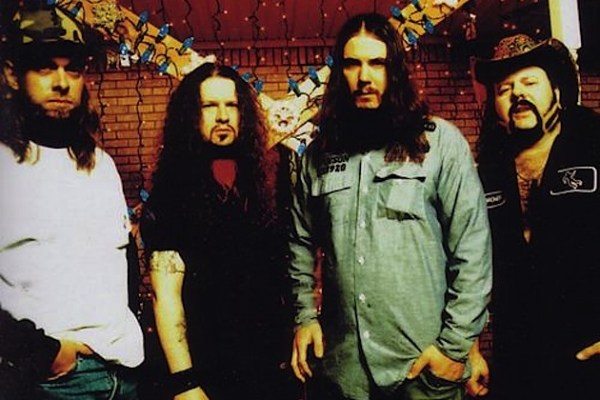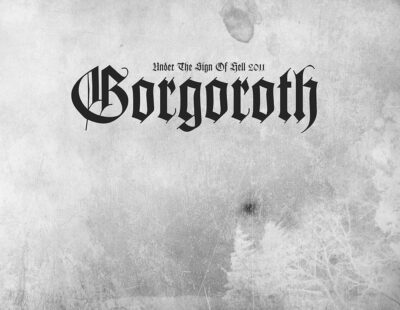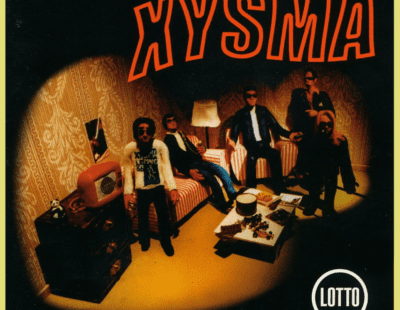
Almost every band has that album: you know, the critically and/or commercially reviled dud in an otherwise passable-to-radical back catalog. Occasionally, a Decibel staffer or special guest will take to the Decibel site to bitch and moan at length as to why everybody’s full of shit and said dud is, in fact, The Shit. This time around, Greg Pratt defends Pantera’s Reinventing the Steel.
In the year 2000, Pantera were on their way down. The band had reached legendary highs and were fizzling, a mighty metal machine torn apart. Their 1996 album The Great Southern Trendkill was good, but it wasn’t great; their previous two albums had been jaw-dropping, so the relative roteness of Trendkill was a letdown, even if it had some good moments on it, which it certainly did. By the time 2000’s Reinventing the Steel rolled around, it was clear this was not a band reinventing themselves, and it was clear that the excitement was fading.

But, wait: it’s not 2000 anymore, and that context matters. Now, instead of wanting Pantera to blow our expectations apart again, we just want a halfway decent album to listen to when we’ve spun A Vulgar Display of Power and Far Beyond Driven too many times to comprehend spinning them again. This is where Reinventing the Steel comes in, and it’s about to impress you way more than it did back in 2000.
Look, I don’t like that cover art either, but when Phil Anselmo belts out the words “your trust is in whisky, weed, and Black Sabbath” in “Goddamn Electric,” it hits hard every time, because it’s true, and because Anselmo knows what he’s talking about. And because that riff is pure Pantera gold. And even though this is the most forgotten of all the Pantera albums the band wants you to remember, it’s still a massive beast of a release.
Thing is, the band was in tatters at this point, and it kinda shows: there’s no off-the-rails energy like on Far Beyond Driven, there’s no out-of-this-world band chemistry like on A Vulgar Display of Power. What there is may be a band going through their motions on their way to the end, sure, but let’s not forget how powerful Pantera’s motions were in the mid-‘90s.
“Yesterday Don’t Mean Shit” is right up there with the best of the band’s greatest material, a menacing stomper of a verse riff, a huge half-time chorus that is equal parts feel-good anthem (lyrically) and celebration of decadence (in vibe, no surprise, given the state of the band).
Then there’s “You’ve Got to Belong to It,” which has one of the most Dimebag riffs in the history of Dimebag riffs in that opening part (you know the one). For this alone, some serious reconsideration of Pantera’s late-era output is obviously long overdue. At this point in the game, when you crave Pantera, you go for Vulgar or Far Beyond, correct? Maybe Cowboys from Hell for the half of it that isn’t actually worse than we remember? But The Great Southern Trendkill and the album at hand here are full of songs that may not grab as immediately or as intensely, but have a lasting pull that’s definitely stronger than you remember. I mean, if you’re putting on “Psycho Holiday” over “Revolution Is My Name,” I can’t help you.
Speaking of “Revolution Is My Name,” holy shit: it rules. End of conversation.
Elsewhere, we’ve got “Death Rattle,” which finds Anselmo mining his extreme tendencies for one of the band’s heavier tunes, and the kinda-silly but mainly-totally-ruling “We’ll Grind that Axe for a Long Time,” the title of which I always actually loved.
And on it goes, for 10 songs of maximum-power Pantera metal, the band bravely sequencing the album so it gets more difficult and dark as it goes on. Sure, Pantera were operating at a slightly more restrained level than we were used to at this point, which made it seem like a letdown at the time, but now with the kind glow of time and distance it’s become clear that Reinventing the Steel is an album fully worth justifying (even if the cover is beyond justification, which, we’ll admit, it totally is).
Pantera didn’t end up grinding that axe for a long time after this album was released, and looking back on this era of the band, the only axes being ground, seemingly, were between members, which casts a grim shadow over this material. But let’s stop remembering all that, and let’s give this album the love it deserves as a last will and testament of one of the biggest and baddest metal bands the mainstream ever had to deal with, this album the final gasping of breath of a huge, dying metal behemoth, one that kept going until the wheels fell off in the best of ways, ending with this quick explosion that we can now look back on and realize is one hell of a good album. In a way, Pantera are still grinding that axe with their legacy, and we are all still grinding that axe, and this album is a part of the soundtrack to our grinding that should no longer be overlooked.






